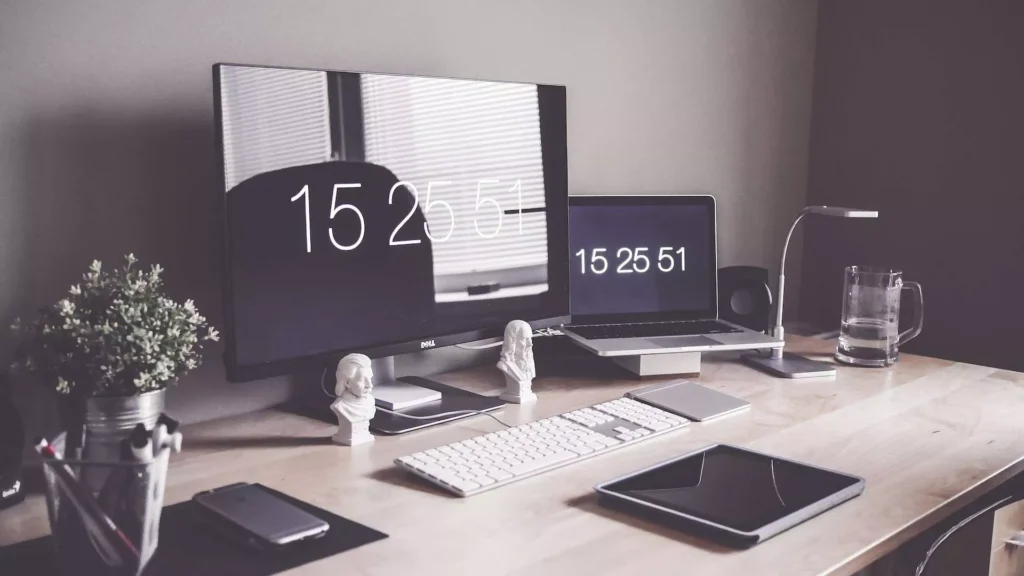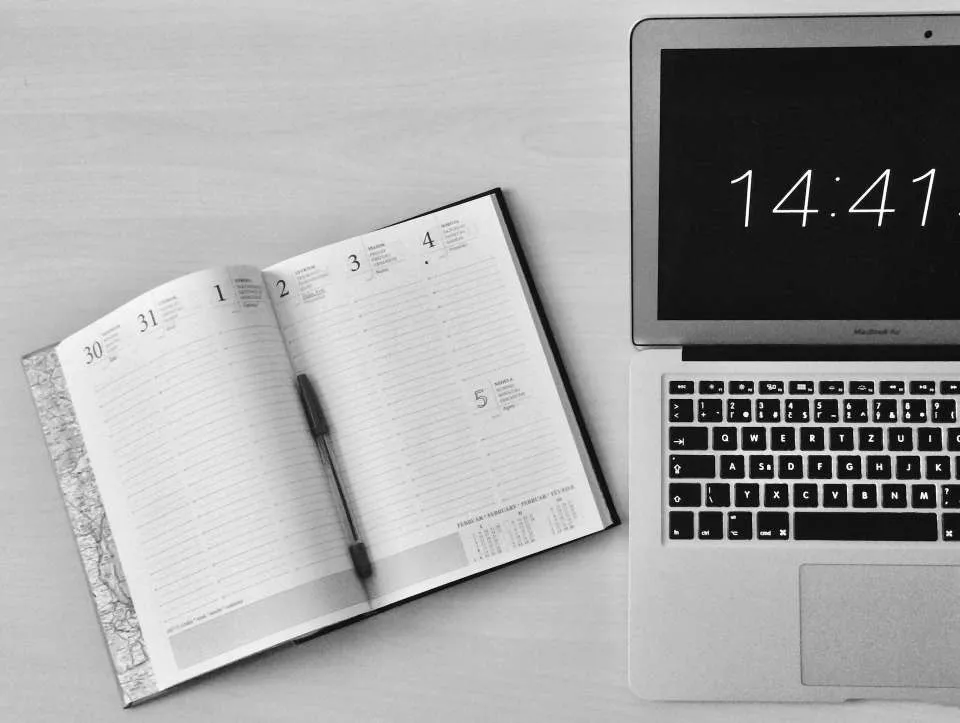Introduction
In today’s digital age, it is nearly impossible to stay away from screens. Whether it is smartphones, tablets, computers, or televisions, screens have become an essential part of our daily lives. They provide us with endless information, entertainment, and connectivity, but surely they have an impact on our mental health? In this blog post, we will discuss the intricate relationship between screen time and mental well-being, exposing the hidden consequences that often go unnoticed.
The pervasiveness of screens in our lives raises important questions about their influence on our mental health. Are we unknowingly sacrificing our well-being for the convenience and entertainment screens offer? Recent research suggests that excessive screen time may be linked to a range of mental health concerns, including depression, anxiety, sleep disturbances, and reduced social interactions. Understanding the potential risks and consequences associated with screen time is crucial for individuals, families, and society as a whole.
This post aims to explore the intricate relationship between excessive screen time and mental well-being. By examining the latest research findings, real-life examples, and expert insights, we will shed light on the impact screens have on our mental health. It is only through a comprehensive understanding of these effects that we can make informed decisions and develop healthier relationships with technology. So, let us embark on this journey to uncover the hidden consequences of excessive screen time and discover ways to promote mental well-being in our digital world.
Explaining Screen Time
In order to understand the impact of screen time on mental health, it is crucial to first define what screen time encompasses. Screen time refers to the amount of time individuals spend engaged with any screen, such as smartphones, tablets, computers, televisions, and gaming consoles. It includes activities like browsing social media, watching videos, playing games, and consuming digital content.
How Screens Have Dominated Our Lives
Over the years, screens have undeniably dominated our lives, infiltrating every aspect of our existence. The statistics paint a vivid picture of this soaring trend. According to recent studies, the average adult spends several hours per day engaged with screens, and for teenagers, screen time often surpasses the recommended limits.
Screens have become a ubiquitous presence, captivating our attention and altering our behaviors. From the moment we wake up, we reach for our smartphones to check notifications, scroll through social media feeds, and catch up on news. Throughout the day, we navigate through work tasks, online shopping, and entertainment—all mediated through screens. Even during leisure time, screens have become the go-to source of relaxation and amusement.
The prevalence of screens in our lives has sparked concerns about the potential consequences it may have on our mental well-being. As screens continue to occupy a central role in our daily routines, it becomes increasingly important to explore the impact they have on our mental health.
The Link Between Screen Time and Mental Health
To understand the impact of screen time on mental health, it is essential to examine the findings of numerous research studies conducted in this field. Researchers have dedicated their efforts to unravel the complex relationship between screen time and mental well-being. By analyzing these studies, we can gain valuable insights into the potential consequences of excessive screen time.
Excessive screen time has been associated with increased levels of stress and anxiety. Constant exposure to the digital world can lead to information overload, perpetuating a sense of being constantly connected and available. The incessant notifications, social comparisons, and fear of missing out can heighten stress levels and contribute to anxiety symptoms.
Depression and Screen Time
Studies have also shown a correlation between excessive screen time and increased risk of depression. The passive consumption of content, exposure to cyberbullying, and reduced face-to-face interactions can contribute to feelings of loneliness, dissatisfaction, and low mood.
Sleep Disturbances
The use of screens before bedtime has been linked to sleep disturbances and insomnia. The blue light emitted by screens can disrupt the natural sleep-wake cycle, making it difficult to fall asleep and obtain restful sleep. This, in turn, can negatively impact mental well-being, cognitive functioning, and overall productivity.
The Social and Emotional Consequences of Screen Time
Excessive screen time can lead to social isolation and a decline in real-life social interactions. Over-reliance on digital connections can replace face-to-face interactions, leading to a sense of loneliness and disconnection from the real world.
Frequent exposure to screens can impact emotional regulation skills, particularly in children and adolescents. The constant stimulation, fast-paced media, and instant gratification can make it challenging to develop healthy emotional coping strategies, leading to difficulties in managing stress, frustration, and conflicts.
By understanding the psychological toll of excessive screen time, we can take steps to mitigate its impact and promote healthier screen habits for better mental well-being.
Factors Influencing the Effect of Screen Time
The content we consume on social media platforms can have a profound impact on our mental well-being. While social media provides opportunities for connection, self-expression, and information sharing, it also exposes us to curated representations of others’ lives, fostering feelings of inadequacy, comparison, and low self-esteem. The constant exposure to filtered realities can lead to negative emotional experiences and contribute to mental health challenges.
Consuming violent or disturbing content on screens can have a significant psychological impact, especially on vulnerable individuals. Exposure to graphic images, violent video games, or distressing media can desensitize individuals, increase feelings of fear or anxiety, and potentially contribute to aggressive behavior.
A teenager may experience increased feelings of fear and anxiety after regularly watching horror movies. The graphic and intense content began to affect his/her sleep and overall well-being.
How Screen Time Affects Different Age Groups
Younger individuals, particularly children, and adolescents, are more susceptible to the impact of excessive screen time. Their brains are still developing, and prolonged screen exposure can disrupt cognitive processes, impede social and emotional development, and lead to attention difficulties.
Young children’s language development may be delayed due to excessive screen time. The lack of face-to-face interactions and interactive play hindered the child’s communication skills.
Adults also face challenges in balancing screen time with their overall well-being. The demands of work, constant connectivity, and blurred boundaries between personal and professional life can lead to stress, burnout, and a diminished sense of work-life balance.
Working professionals may find themselves constantly checking work emails on their phones, even during their personal time. This constant connectivity began to take a toll on his/her mental health, as he/she struggled to disconnect from work and find time for self-care.
The Role of Moderation in Screen Time
It is essential to establish healthy limits and boundaries around screen time to mitigate the potential negative effects. Setting designated periods for screen use, incorporating offline activities, and practicing mindful engagement with screens can help promote a healthier relationship with technology.
Occasionally disconnecting from screens through digital detoxes can be highly beneficial for mental well-being. Taking breaks from constant screen exposure allows individuals to recharge, focus on offline activities, and reconnect with themselves and the world around them.
By considering the influence of screen content, age-related vulnerabilities, and the importance of moderation, individuals can make informed choices and establish healthier screen habits that promote positive mental health and overall well-being.
Strategies for a Healthy Screen Time Routine
Designating specific areas in your home as screen-free zones can create opportunities for quality offline interactions and promote a healthier balance between screen time and other activities. For example, the dining table or bedrooms can be designated as screen-free areas to encourage focused mealtimes and restful sleep.
Implementing time management techniques can help individuals regain control over their screen time and ensure a more balanced routine. Strategies like setting specific time limits, using productivity apps, and scheduling dedicated periods for focused work or leisure activities can promote a healthier relationship with screens.
Rediscovering Life Beyond Screens
Engaging in outdoor activities can provide a refreshing break from screens and offer numerous mental health benefits. Spending time in nature, whether through hiking, gardening, or simply taking a walk, can reduce stress, improve mood, and enhance overall well-being.
Encouraging creative endeavors and pursuing hobbies that do not involve screens can provide a sense of fulfillment and joy. Engaging in activities like painting, playing a musical instrument, writing, or cooking allows individuals to tap into their creativity and find new sources of satisfaction.
Cultivating a Healthy Relationship with Screens
Being mindful while using screens involves bringing awareness to our intentions, emotions, and the impact of our digital interactions. Practicing mindfulness techniques, such as taking deep breaths before using screens, setting specific intentions for each session, and periodically checking in with ourselves, can help create a healthier and more intentional screen time experience.
Engaging in regular self-care activities is essential for maintaining a healthy relationship with screens. Prioritizing activities like exercise, meditation, journaling, spending quality time with loved ones, and getting sufficient sleep allows individuals to recharge, reduce stress levels, and develop a more holistic approach to well-being.
By establishing boundaries, encouraging alternative activities, and practicing digital well-being, individuals can cultivate a healthier screen time routine that supports their mental
Conclusion
Throughout this blog post, we have explored the profound impact of screen time on mental health. We have uncovered the hidden consequences that excessive screen time can have on our well-being, ranging from stress and anxiety to depression, sleep disturbances, and social and emotional challenges. Research has highlighted the link between screen time and mental health, shedding light on the psychological toll it can take.
We discussed the factors that influence the effect of screen time, including the content and context of our digital interactions, the age and developmental stage of individuals, and the importance of duration and balance in our screen habits. It became evident that the choices we make regarding our screen use play a significant role in shaping our mental well-being.
Now more than ever, it is crucial to reflect on our digital habits and strive for a healthier digital lifestyle. We must recognize the need to establish boundaries, set healthy limits, and be mindful of the content we consume. It is essential to prioritize self-care, engage in alternative activities, and find a balance between our online and offline lives.
By embracing a healthier digital lifestyle, we can enhance our mental well-being and foster healthier relationships with screens. Let us take charge of our screen time and make conscious choices that support our overall well-being.
In this digital age, screens have become an integral part of our lives. However, we have the power to navigate our screen time consciously and responsibly. By incorporating the strategies and insights discussed in this blog post, we can reclaim control over our digital interactions and use screens as tools for enrichment rather than sources of detriment.
Let us remember that we are not powerless in the face of screens’ influence on our mental health. By prioritizing our well-being, setting boundaries, and engaging in meaningful offline activities, we can strike a balance that allows us to reap the benefits of technology while preserving our mental and emotional health.

About the Author:
Shahid Essa is a blogger and M. Phil Scholar at Iqra University Karachi


